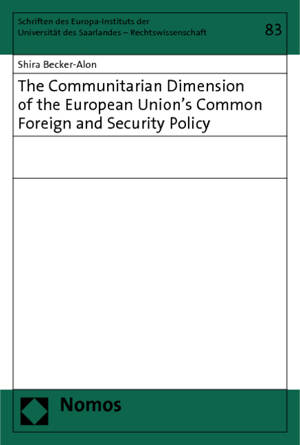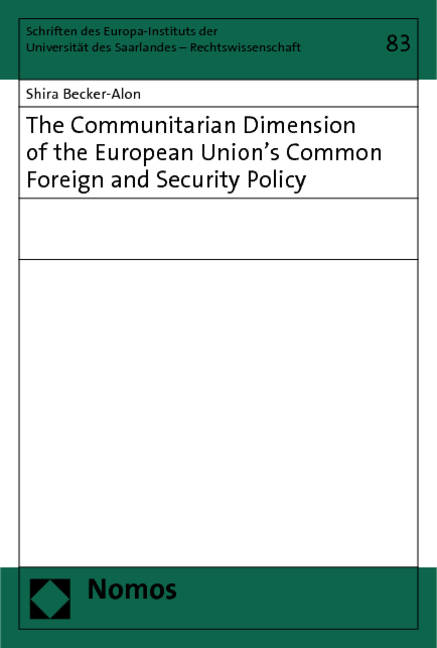
- Afhalen na 1 uur in een winkel met voorraad
- Gratis thuislevering in België vanaf € 30
- Ruim aanbod met 7 miljoen producten
- Afhalen na 1 uur in een winkel met voorraad
- Gratis thuislevering in België vanaf € 30
- Ruim aanbod met 7 miljoen producten
Zoeken
The Communitarian Dimension of the European Union's Common Foreign and Security Policy
Shira Becker-Alon
Paperback | Engels | Schriften des Europa-Instituts der Universität des Saarlandes - Rechtswissenschaft | nr. 83
€ 79,95
+ 159 punten
Omschrijving
An examination of the European Community's (EC) involvement within the framework of the Common Foreign and Security Policy (CFSP), whereby, the inevitable interaction between these two frameworks is exposed, despite the initial intention to shield the intergovernmental CFSP from the influence of the supranational EC to the greatest extent possible. The work examines different aspects and consequences of the EC's contribution to the CFSP, both in policy-defining and in practical terms. The growing EC dimension of CFSP indicates a dominant cross-pillar approach in the conduct of European foreign policy. This was essential to allow for the efficient implementation of the CFSP and enhanced the influence of the EC and its institutions. Nonetheless, this support for the CFSP seemed at times to compromise the independence of the EC. Despite the acknowledgement of its advantages, the cross-pillar approach is not necessarily reflected in the Lisbon Treaty. As the examination of the Lisbon Treaty continues, the pillar structure is not entirely overcome.
Specificaties
Betrokkenen
- Auteur(s):
- Uitgeverij:
Inhoud
- Aantal bladzijden:
- 312
- Taal:
- Engels
- Reeks:
- Reeksnummer:
- nr. 83
Eigenschappen
- Productcode (EAN):
- 9783832960261
- Verschijningsdatum:
- 9/06/2011
- Uitvoering:
- Paperback
- Formaat:
- Trade paperback (VS)
- Afmetingen:
- 153 mm x 227 mm
- Gewicht:
- 4759 g

Alleen bij Standaard Boekhandel
+ 159 punten op je klantenkaart van Standaard Boekhandel
Beoordelingen
We publiceren alleen reviews die voldoen aan de voorwaarden voor reviews. Bekijk onze voorwaarden voor reviews.











